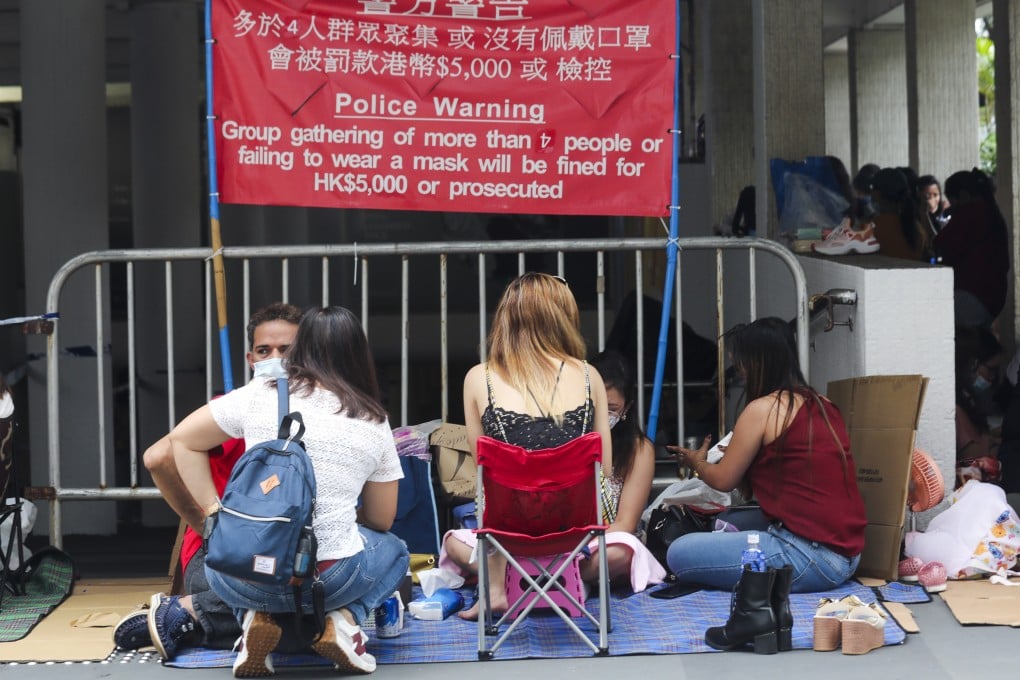Hong Kong domestic helpers under financial stress in pandemic, and are not getting enough sleep
- Three in 10 migrant workers were in dire need of financial and emotional support, a survey found. Inflation and lost jobs at home meant they sent more money
- Many helpers suffered stress, and more than half said they only sleep 4-6 hours a day. Employers were supportive, many said, but 40pc felt negative about life

The coronavirus pandemic brought with it crushing financial pressures that left 44-year-old Grace* so stressed she couldn’t sleep.
Her siblings in the Philippines lost their jobs, which left her responsible for supporting her parents. And when two of her sisters fell ill and needed operations, they looked to her to cover their hospital bills.
“I felt like I was carrying the weight of the world. I was really down about having to borrow money from the bank,” says Grace, who has been working as a domestic helper in Hong Kong since 2009.
While the family farm in the Philippines continued to produce guava and eggs, the lockdown in the country meant there were no buyers, and the family gave away their produce rather than let it rot.
“During lockdown [in the Philippines] they couldn’t go out, so I had to send them groceries online. Fortunately, my employer was willing to help me financially,” says Grace.